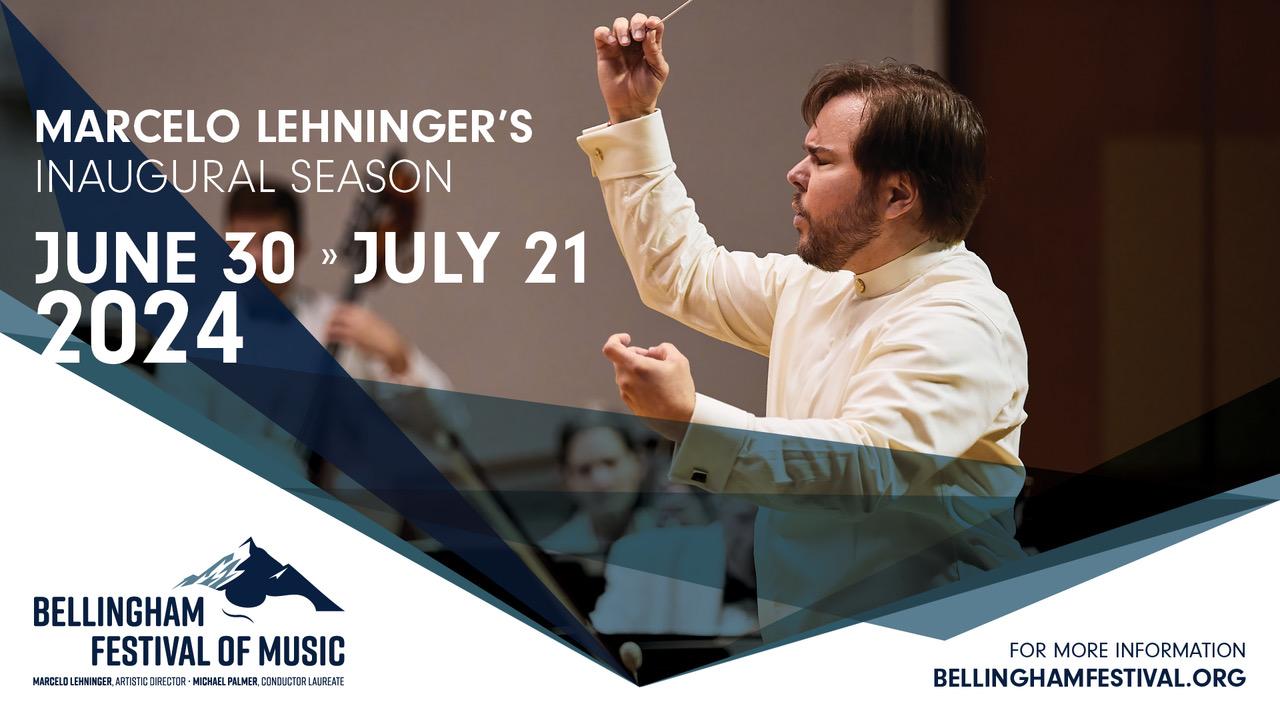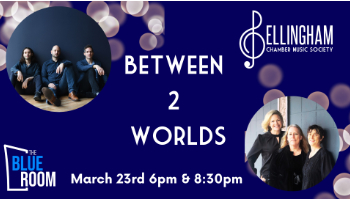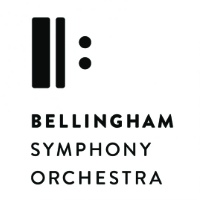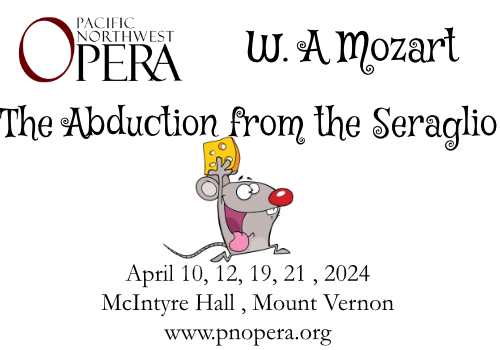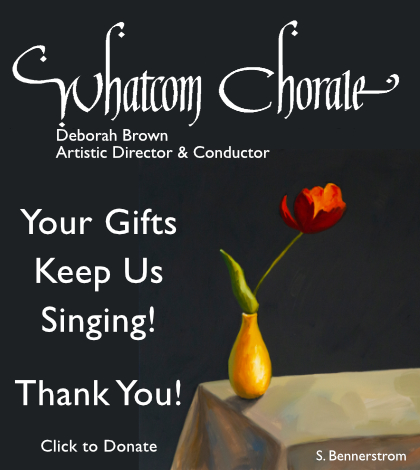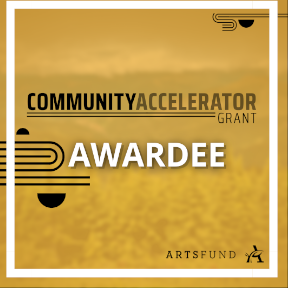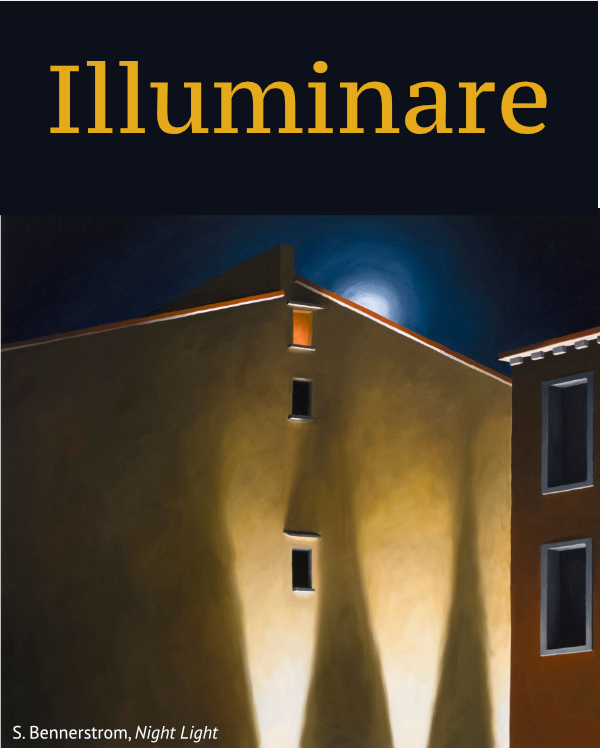
We dedicate today's concert to all those around the world who are suffering from the violence of war and other humanitarian crises. We hold in our hearts the innocent lives that have been lost and the survivors whose lives have been touched by unspeakable horrors. We honor those whose fierce determination to promote peace and security in our world has led to great personal suffering and loss. We offer this performance with love in our hearts and thank you for sharing in this emotional journey with us.
“Prayer for Ukraine”
Composed by Mikola Lysenko (1842–1912)
Lyrics by Oleksandr Konysky (1836–1900)
“Sorrow into Song”
Christine Donkin (1976–)
Text: Sara Teasdale (1884–1933)
“Holding the Light”
B. E. Boykin (1989–)
Text: Stuart Kestenbaum (1953–)
“Peace”
Sarah Quartel (1982–)
Text: Sara Teasdale
Soloists:
Joanna Wiebe, alto
Nancy Goldfogel and Mary Somerville, sopranos
“The Oak”
Becky McGlade (1974–)
Text: Alfred, Lord Tennyson (1809–1892)
Rebekah Hood-Sava, cello
Soloists:
Kim Markworth and Mary Somerville, sopranos
“Trees Need Not Walk the Earth”
Jocelyn Hagen (1980–)
Text: David Rosenthal (1945–1992)
Soloist:
Kim Markworth, soprano
“Refuge”
Elaine Hagenberg (1979–)
Text: Sara Teasdale
Ensemble:
Rebekah Hood-Sava, cello
Kay Reilly, marimba
Logan Marshall, rainstick
INTERMISSION
Illuminare
Elaine Hagenberg
Splendor
Text: Saint Ambrose (340–397)
Caritas
Text: Hildegard von Bingen (1098–1179)
Nox
Text: Aurelius Prudentius Clemens (348–413)
Munera pacis
Texts: Saint Gregory (540–604)
John 14:27
Illuminare his
Text: Canticle of Zechariah (Luke 1:68–79)
A Prayer for Ukraine
Боже великий, єдиний,
Нам Україну храни,
Волі і світу промінням
Ти Її Осіни.
Світлом науки і знання
Нас, дітей, просвіти,
В чистій любові до краю,
Ти нас, Боже, зрости.
Молимось, Боже єдиний,
Нам Україну храни,
Всі свої ласки й щедроти
Ти на люд наш зверни.
Дай йому волю, дай йому долю,
Дай доброго світу, щастя,
Дай, Боже, народу
І многая, многая літа.
Lord, oh the Great and Almighty,
Protect our beloved Ukraine,
Bless her with freedom and light
Of your holy rays.
With learning and knowledge enlighten
Us, your children small,
In love pure and everlasting
Let us, oh Lord, grow.
We pray, oh Lord Almighty,
Protect our beloved Ukraine,
Grant our people and country
All your kindness and grace.
Bless us with freedom, bless us with wisdom,
Guide us into a kind world,
Bless us, oh Lord, with good fortune
For ever and evermore.
Sorrow into Song
Sara Teasdale
Like barley bending
In low fields by the sea,
Singing in hard wind
Ceaselessly;
Like barley bending
And rising again,
So would I, unbroken,
Rise from pain;
So would I softly,
Day long, night long,
Change my sorrow
Into song.
Holding the Light
Stuart Kestenbaum
Gather up whatever is
glittering in the gutter
whatever has tumbled
in the waves or fallen
in flames out of the sky.
For it’s not only our
hearts that are broken,
but the heart
of the world as well.
Stitch it back together.
Make a place where
the day speaks to the night
and the earth speaks to the sky.
Whether we created God
or God created us
it all comes down to this:
In our imperfect world
we are meant to repair
and stitch together
what beauty there is, stitch it
with compassion and wire.
See how everything
we have made gathers
the light inside itself
and overflows? A blessing.
Peace
Sara Teasdale
Peace flows into me
As the tide to the pool by the shore;
It is mine forevermore,
It ebbs not back like the sea.
I am the pool of blue
That worships the vivid sky;
My hopes were heaven-high,
They are all fulfilled in you.
I am the pool of gold
When sunset burns and dies;
You are my deepening skies,
Give me your stars to hold.
The Oak
Alfred, Lord Tennyson
Live thy Life,
Young and old,
Like yon oak,
Bright in spring,
Living gold;
Summer-rich
Then; and then
Autumn-changed
Soberer-hued
Gold again.
All his leaves
Fall’n at length,
Look, he stands,
Trunk and bough
Naked strength.
Trees Need Not Walk the Earth
David Rosenthal (from Anthology of Magazine Verse for 1920 ~ Public Domain)
Trees need not walk the earth
For beauty or for bread;
Beauty will come to them
Where they stand.
Here among the children of the sap
Is no pride of ancestry:
A birch may wear no less the morning
Than an oak.
Here are no heirlooms
Save those of loveliness,
In which each tree
Is kingly in its heritage of grace.
Here is but beauty’s wisdom
In which all trees are wise.
Trees need not walk the earth
For beauty or for bread;
Beauty will come to them
In the rainbow—
The sunlight—
And the lilac-haunted rain;
And bread will come to them
As beauty came:
In the rainbow—
In the sunlight—
In the rain.
Refuge
Sara Teasdale
From my spirit’s gray defeat,
From my pulse’s flagging beat,
From my hopes that turned to sand
Sifting through my close-clenched hand,
From my own fault’s slavery,
If I can sing, I still am free.
For with my singing I can make
A refuge for my spirit’s sake,
A house of shining words, to be
My fragile immortality.
Illuminare
Translations from Illuminare score
Splendor
St. Ambrose (340–397)
Splendor paternae gloriae,
de luce lucem proferens,
lux lucis et fons luminis,
diem dies illuminans.
Splendor of God’s glory,
Brings forth light from light.
light of light, light’s living spring,
Day, all days, illuminates.
Caritas
Hildegard von Bingen (1098–1179)
Caritas abundat in omnia,
de imis excellentissima
super sidera,
atque amantissima in omnia,
Quia summo regi
osculum pacis dedit.
Love abounds in all,
from the depths most excellent
to beyond the stars,
and loving toward all,
she has given the highest king
the kiss of peace.
Nox
Kyrie eleison. Christe eleison.
Lord have mercy. Christ have mercy.
Aurelius Prudentius Clemens (348–413)
Nox et tenebrae et nubila,
confusa mundi et turbida.
Caligo terrae scinditur,
percussa solis spiculo.
Night and darkness and fog,
confused world and turmoil.
Dark gloom tears the earth,
beats and stabs the sun.
Munera pacis
Saint Gregory (540–604)
Ecce jam noctis tenuatur umbra,
Lux et auroræ rutilans coruscat.
Supplices rerum Dominum canora
Voce precemur:
Ut reos culpæ miseratus, omnem
Pellat angorem, tribuat salutem,
Donet et nobis bona sempiternae
Munera pacis.
Behold, already night and shadows taper off
Light and dawn sparkle and quiver.
We humbly beg the Lord through song
Our voices pray:
Though we are guilty, view us with compassion
Banish anguish, bestow health
Grant us everlasting goodness
Give us peace.
John 14:27
Peace I leave with you, my peace I give to you: not as the world giveth, give I to you.
Let not your heart be troubled, neither let it be afraid.
Illuminare his
Canticle of Zechariah (Luke 1:68–79)
Illuminare his qui in tenebris
et in umbra mortis sedent:
ad dirigendos pedes nostros in viam pacis.
Illuminate those in darkness
and in the shadow of death are seated
direct our footpath in the way of peace.
Whatcom Chorale welcomes you to this afternoon’s moving and thought-provoking concert, featuring contemporary women composers. Each piece highlights the composer’s sensitive, melodic insights, skillfully employed to expand the impact of remarkable poetry. Our singers have found engaging with this all-new repertoire exciting, challenging, and extremely rewarding. We sincerely hope you agree, and come away inspired by this fresh generation of talented musicians.
Canadian composer Christine Donkin writes: “‘Sorrow into Song’ was inspired by my mother, who passed away in April 2021. In the last years of her life, she was unable to speak or understand language due to dementia, but she never stopped singing. . . . The way that my mother continued ‘singing in hard wind ceaselessly’ after she lost the ability to speak is reflected in the way that I have set the poem: while the tenor and bass parts contain all of the text, the soprano and alto parts consist almost entirely of wordless singing. The only words sung by the sopranos and altos are ‘rise from pain’ –words which I think encapsulate both the essence of the poem and the role of music in my mother’s life, especially when she was ill.”
To further elucidate Sara Teasdale’s poem, Donkin sets the lyrics in a pulsing 6/8 time to suggest the field of barley undulating with the wind. Tenors and basses open with a melodic theme, followed by the sopranos and altos passing a playful chant back and forth. Although the treble voices speak no words, they nevertheless engage in conversation. A brief piano interlude leads seamlessly to the bass/tenor entrance with a repetition of the opening lyrics. At this point, however, the sopranos and altos also enter and overlap the melody with a series of poignant musical sighs. The enriched tapestry of sound suggests a new potential for communication between the voice parts, and leads to the climactic “Rise from pain” sequence that succeeds in transforming “sorrow into song.” Donkin’s layering of harmonies creates a deeper, more meaningful communal experience. The piece concludes with the treble voices resuming their wordless chant, as if to reassert the enduring power of syllables simply sung to connect us all.
Stuart Kestenbaum’s uplifting poem, “Holding the Light,” offers a gentle series of directives for the world to follow toward healing and renewed community. In her musical interpretation, B. E. Boykin portrays the poet’s admonitions within the insistent piano accompaniment, where repetitive sixteenth notes and sweeping arpeggios urge the voices forward. Choral rhythms deftly follow the cadence of natural speech, and the optimistic text is further emphasized through several unison passages. Voice parts join forcefully in the dramatic reiterations of the work’s title, where Boykin’s strong use of duplets and unusual melodic intervals further highlights the theme of individuals working to create common bonds of community.
“Peace,” by Sarah Quartel, offers a deceptively simple setting of Sara Teasdale’s exquisite love poem. With a halting tempo that interjects 5/4 measures and languid triplets, Quartel depicts the incessant tidal flow captured in a pool of reflective seawater as a metaphor for relationships, both worldly and spiritual. The calm waters mirror a “vivid sky” that bestows the hope of fulfillment, but continual triplets in the piano accompaniment introduce a tense counterbalance to the more evenly measured voice parts. Treble piano notes evoke the sound of trickling water, constantly moving and impossible to contain. Quartel’s beautifully complex and sometimes dissonant vocal harmonies also belie the idea that love can be held in stasis. The constant flow, as well as the unanticipated clashes that allow for growth and transformation, are essential. A new melody enters dramatically with the words, “I am the pool of gold,” signifying a profound sense of self-discovery in which the ecstatic experience becomes a reflection of sunlight, the beloved, or even godliness. Then, as the sun’s brilliance fades to twilight and deepening night, the poet reminds us that peace embraces communion, emanating from both within and without. Quartel repeats Teasdale’s concluding line with hushed reverence, tenderly inviting the beloved: “Give me your stars to hold.”
In her arrangement of Alfred, Lord Tennyson’s “The Oak,” Cornish composer Becky McGlade celebrates two of her passions, choral music and the cello. The chorus begins this piece unaccompanied, with a stately cadence of warm harmonies. The cello enters, sounding a supple line that weaves a melody among the voices. McGlade’s chosen instrument aptly illustrates the steadfast endurance of the oak through the changes and challenges of its seasonal cycle. The cello’s deep tones emerge resonant and satisfying while the upper voices sustain a fluid interplay of wordless melody. McGlade announces the poem’s final stanza with a return to the opening theme, using this choral touchstone to emphasize the great oak’s resilience and constancy. As the piece ends, voice parts become the harmonic backdrop to an emphatic rising cello line. For even in the winter of its long and eventful life, the tree demonstrates its “naked strength.”
David Rosenthal’s poem, “Trees Need Not Walk the Earth,” counters our modern society’s impetus to gain wealth, influence, and notoriety. Akin to the biblical admonition, “Consider the lilies of the field…” (Matthew 6:28–33), the text suggests that beauty, sustenance, and wisdom are inherent aspects of being. Thus the strife and competitive ambition that characterize our lives seem misguided. Jocelyn Hagen’s provocative and innovative setting of Rosenthal’s work won the Young New Yorkers’ Chorus Competition for Young Composers in 2013. The piece opens with an insistent marimba riff, cleanly struck, that connotes an underlying primal mood. Voices enter warmly with simple harmonies that build in strength and complexity to a thrilling and unified dissonance. Individual lines meld powerfully into a sustained whole, signifying the equality of each participant. Vocal entrances are then staggered to deliver the lyrics, “Here are no heirlooms,” creating an overlapping harmonic blur that resolves into clarity with the words, “save those of loveliness.” A ringing six-part climax follows, in which all trees are declared “kingly,” so none is exalted before another. As if to recognize and accentuate this truism, the choir sings in unison, “And bread will come to them As beauty came.” Hagen’s unexpected intervals fall on the ear like trickling raindrops—effortless, inevitable, and nourishing to every tree. In closing, the marimba resumes its opening motif accompanied by the soothing patter of a rainstick.
To describe her work, “Refuge,” Elaine Hagenberg writes: “For me, singing has often been an expression of joy, but also a comfort during times of uncertainty or fear. In ‘Refuge’ the piano frantically races out of control, as the cello becomes the voice of heartache and despair. As the poetry unfolds, the choir sings of crushed dreams, confusion, and a yearning for help. But through singing, we can turn our eyes from the surrounding darkness, and lift our voices to offer comfort, beauty and hope.”
The poem by Sara Teasdale describes desperate images of anguish and loss, which Hagenberg translates into a slow, dirge-like melody set against the keyboard’s distraught arpeggios. A haunting cello line of sustained notes voices a sense of self-doubt and regret, but also suggests a hopeful aura of rising tones. The pivotal moment occurs with the words, “From my own fault’s slavery,” first sung by the sopranos, then repeated with mounting intensity as the altos, tenors, and basses join in successive measures. Culpability for one’s emotional status empowers the individual to heal and to embark on a new reality. The frantic piano arpeggios suddenly cease, and the chorus enters, sparsely accompanied, offering a profoundly beautiful melody, “If I can sing, I still am free.” It is the music of creation that bestows the possibility of transcendence from intense suffering to the joy of self-awakening.
Illuminare, also composed by Elaine Hagenberg, revitalizes the rich and eloquent texts from ancient hymns to deliver an inspiring message of salvation and peace. The five-movement work celebrates the divine gifts of light and love that persist, even when our lives descend into darkness, and ultimately illuminates the path toward peace and joyful fulfillment.
Movement one, “Splendor,” with text from Saint Ambrose (340–397), begins with an exultant burst of sixteenth notes from the orchestra, followed by a jubilant choral homage of praise, extolling the dawn of light. The cello enters briefly with a contemplative melody that foreshadows the restoration of peace promised in movement four. Alto voices join with the profound reflection that God is light and therefore creates light, meaning that all light must emanate from God. Hagenberg introduces sudden, unexpected key changes as additional voice parts take up the psalm, reinforcing the dynamic aspect of God’s interaction with creation. The movement concludes as it began, with exuberant praise for the glorious gift of light.
Movement two, “Caritas,” expresses the inspired words of Hildegard von Bingen (1098–1179) with a tender melody that highlights the women’s voices. Warm harmonies flow effortlessly, elucidating the main text, “Love abounds in all,” and enveloping the listener in a comforting soundscape. Echoing the confident devotion of the upper voices, tenors and basses enter gently and are joined by the women to create an ethereal wash of harmony. Hildegard’s hymn closes beautifully with love bestowing “the kiss of peace.” Hagenberg concludes this movement with a fleeting reference to the peace theme by the cello, after which the voices decrescendo to a series of sustained tones, reiterating “caritas” or love.
With text by Aurelius Prudentius Clemens (348–413), movement three, “Nox,” unleashes an oppressive night of intense suffering, confusion, and despair. The strings open plaintively with a somber melody. Treble voices take up the chant, intoning “Lord have mercy, Christ have mercy,” with prescient understanding of the chaos to come. Suddenly, two resounding beats of the bass drum and an abrupt key change to B minor signal cacophony. Hagenberg portrays the ravages of night with a furious tempo, harmonic dissonance, chromatic progressions, syncopated offbeats, heavily accented notes, and disconnected staccati. A relentless, yet musically captivating “dark gloom tears the earth, beats and stabs the sun.”
A welcome calm settles the turmoil as the orchestral opening to movement four, “Munera Pacis,” alludes to the peace theme. The text, by Saint Gregory (540–604), describes the dawning of a new day after the terrors of night recede. Voicesenter with an uplifting air of astonishment, acknowledging that light appears despite human unworthiness only through the grace of God. This realization of a power beyond humanity and belief in a divine benevolence both lead to a penitent admission of guilt, denoted by a key change to A minor. A prayer of supplication follows, in which the resonant alto line is joined by the sopranos in a heartfelt duet asking simply for peace. This plea is reiterated as the tenors enter the dramatic choral sequence that culminates with a hushed subito piano. The assurance of peace comes as if from the voice of Christ, with tenors delivering the long-awaited peace theme in unison. As the movement closes, the orchestra recalls the haunting melody of “Caritas” from movement two, reminding us that peace is generated from the wellspring of love.
Hagenberg draws the text of movement five, “Illuminare his,” from the Canticle of Zechariah (Luke 1:68–79). The passage is from Zechariah’s prophetic utterance affirming his faith in God after the extraordinary birth of his son, John the Baptist. By referencing Zechariah, who regains his voice only after demonstrating unquestioning belief, Hagenberg implies that the pathway from darkness to light is through steadfast faith. String instruments in the opening measures recall the glorious statement from movement one when light first burst forth. The treble voices enter with an exclamation of praise, “Illuminare!” The lower voices join with equal enthusiasm and repeat the exhortation to illuminate the darkness,over and over. Although the text turns to “the shadows of death,” the choral harmonies continue driving forward with a confident cadence that confirms belief. Hagenberg’s graceful rising harmonies that subsequently “direct our footpath in the way of peace” infuse the words with hope. A brilliant finale shifts to the key of D major, harkening back to movement one, and all voices joyously extoll the triumphant return of all-encompassing, glorious light.
